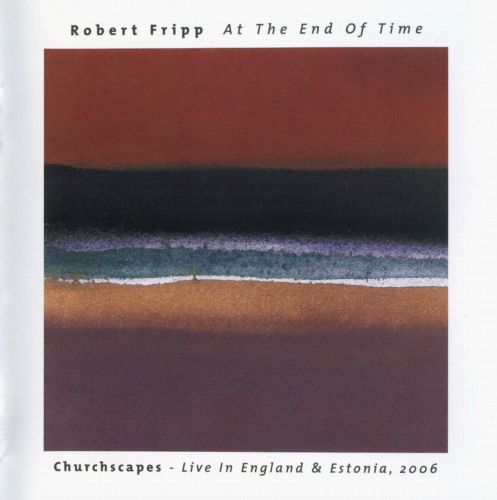

There are so many facets to Robert Fripp's myriad of talents that it is practically an inaccuracy to label him simply as a guitarist. While his name may be forever linked to that of King Crimson, outside of the band's auspices Fripp remained one of the most exceedingly active (not to mention criminally and summarily underrated) musicians to have emerged from the late-'60s rock & roll scene. One of Fripp's consistently adventurous solo musical statements has been via the artist's instrumental Soundscapes. On this release, he has committed those spirit-connecting sounds and concepts to the next logical level by offering them in a variety of sacred spaces (read: churches and cathedrals) to eager and willing ears -- à la Churchscapes. The origins of Fripp's use of what he calls "looping technology" can be traced back to August of 1972 and his initial collaborations with Brian Eno and then David Sylvian some two decades later. The ten respective cuts -- which are spread over an hour and 15 minutes -- are excerpts from five different performances throughout England and Estonia. The opening sequence is lifted from St. Paul's Cathedral in London (June 13, 2006) with tone probes that confide in the listener by maneuvering them through several distinct motifs that build from a bell-like resonance into a richly hued tapestry. The following "Evensong" and accompanying coda reflect the sense of subtle awe that was undoubtedly inspired by the Pühavaimu Kirik in Tallinn, Estonia (August 22, 2006). A gentle, organic tune rises out of the multi-textured sonic stratum. The second (of two) interpretation of the project's title composition "At the End of the World" is the earliest work on the album, having been documented several months prior (January 14, 2006) to the spring of 2006 English and Summer of 2006 Estonian sojourns. As the unofficial centerpiece it embodies an accurate representation of a real-time Soundscapes/Churchscapes experience. The final trilogy hail from the Lossikirik in Haapsalu, Estonia (August 24, 2006) and almost immediately one can sense an increasingly conspicuous reverence in Fripp's tone and melodic structure. "Evensong Coda" -- from the same venue -- concludes the disc with the revelation and exploration of an exquisite benediction.